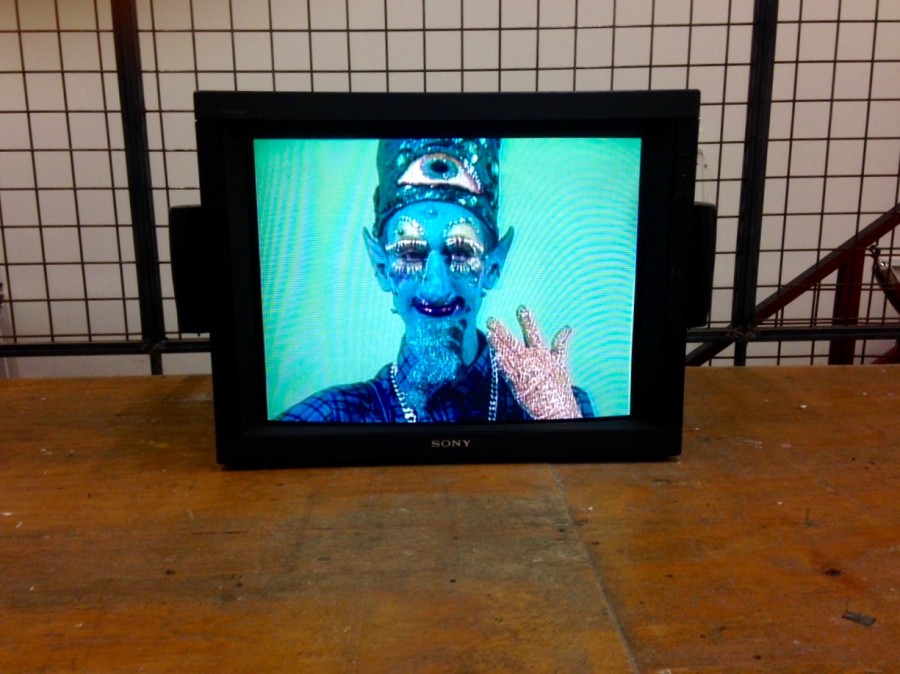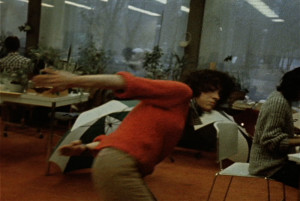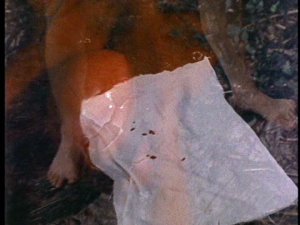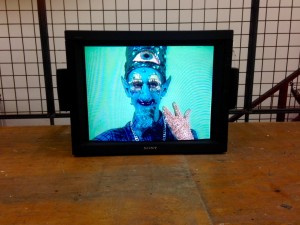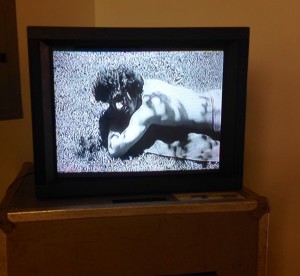Avant-garde Buries The Mainstream: The Decay of Patriarchy at MAD and THINGS at Participant Inc
The Museum of Arts and Design recently completed Eye on a Director: Canyon Cinema, a series of screenings dedicated to San Francisco’s legendary avant-garde film center Canyon Cinema. MAD’s program reserved August 11th to pioneer feminist filmmakers among which were Abigail Child, Barbara Hammer and JoAnn Elam. Entitled Secession: The Decay of Patriarchy, the screening was curated by the museum’s public programs manager Katerina Llanes and Carson Parish.
Elam’s 8-minute long Lie Back and Enjoy It from 1982 sharply tackles the media’s objectification of woman body, a bitterly relevant topic partially perpetuated by the anonymity the Internet offers as well as the misogyny embedded in everyday language. Executed in the form of a conversation between a man and a woman, who both remain anonymous, the video dissects the typical “man with a camera” figure in the form of a discussion between two opposing agents. “I have a camera, you don’t” says the man to the woman, who opinionatedly revolts against the male gaze’s dehumanization of female identity. Maintaining a vibrant argument through the actors’ constant back and forth, Elam articulates on metaphorical notion of the camera as a phallic power symbol.
Hammer’s four-minute long 1974 film Menses establishes a T.V. commercial aesthetic in which women experiment with menstrual blood and hygiene products within a plastic aesthetic. In an atmosphere reminiscing domestic good commercials that directly target women, Hammer’s version subverts societal norms on female anatomy and its dictated primal function, which is to bear a child. Building a woman-only community backdropped by the 70s hippie milieu, the video does not fail to shock and provokes even decades later.
On the opposite corner of the island, Lower East Side’s acclaimed non-profit art hub Participant Inc presents THINGS, a Bradford Nordeen-curated group exhibition pairing influential yet underestimated artists Curt McDowell, Tom Rubnitz and Robert Ford, all of whom succumbed to AIDS pandemic before 2000s, with a group of new generation names. Although all three came into recognition with their underground work in film or journalism—first two with moving image and Ford with his black culture-focused zine THING—the exhibition inclines towards their less known object based practices. Their most seminal works, however, are also on view.
Echoing Hammer’s deconstructed day-time TV aesthetic in its quick ninety second run is Rubnitz’s Pickle Surprise, a delightful yet unabashedly grotesque “informercial” teaching how to stack a sandwich. While the word ‘ham’ repeats between the lips of downtown divas Lady Bunny and RuPaul, a live pickle—performed by Sister Dimension sporting heavy make up and props enough to turn Matthew Barney green with envy—appears uninvited to complete the dish. Purely queer in its execution, from its uncanny plot to bizarre cooks in charge, the video—now a YouTube sensation in its own right with more than two million views—still strikes as authentic, uncanny and audacious.
In contrast, McDowell’s Loads from 1980 is a poetic contemplation, a visual diary of one’s carnal journey in and out of his apartment in San Francisco. Cruising his way throughout the city streets and parks, the protagonist, played by the artist himself, narrates his sexual encounters that mainly include him offer fellatio to various men. His recollection of these hook-ups through various psychical or habitual attributes adopt a fortnight, subliminal tone, complimenting the prevailing sexual abundance. Maya Deren’s modernist angst, Wakefield Poole’s bold hyper sexuality and Warhol’s placid narratives resonate in this twenty-two minute long meditation on sensuous captivation and introspective impulse.
*Special thank you to John Andrew Simone for fact checking.
